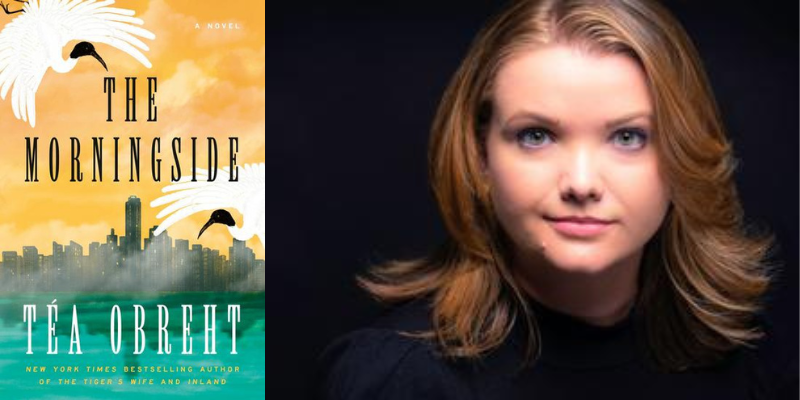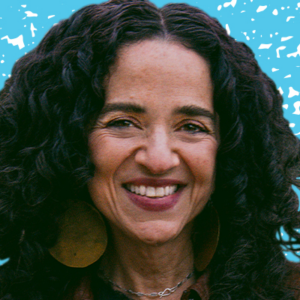Téa Obreht on How She Found The Morningside
In Conversation with Mitzi Rapkin on the First Draft Podcast
First Draft: A Dialogue of Writing is a weekly show featuring in-depth interviews with fiction, nonfiction, essay writers, and poets, highlighting the voices of writers as they discuss their work, their craft, and the literary arts. Hosted by Mitzi Rapkin, First Draft celebrates creative writing and the individuals who are dedicated to bringing their carefully chosen words to print as well as the impact writers have on the world we live in.
In this episode, Mitzi talks to Téa Obreht about her new novel, The Morningside.
Subscribe and download the episode, wherever you get your podcasts!
From the episode:
Mitzi Rapkin: How did the pandemic and the feeling you had at the beginning, when you started writing this in maybe a feverish, dreamy state, translate into something that was climate related where your characters are living in a city where much of it is under water. How did that become the theme for you, and part of the setting?
Téa Obreht: Two things happened. One was as the pandemic kicked off, I found myself kind of, I suppose, isolated, in a way, by the fact that people around me, the people in my life seemed surprised. I mean, obviously, it was a surprising moment, it was in many ways a world altering moment, and we still have not recovered, there are so many elements of society that were touched by this. And I am someone who suffers from OCD, from intense anxiety, particularly having to do with germs. And I was surprised at my own reaction, the fact that I felt so prepared. And I tried to think about where that had come from. And I think the answer was, I’m realizing now or realized at some point, while writing the book that the answer was that I had been raised by… by people who had suffered a society ending event, you know, not ending, but a society altering event. They were born, and they lived, and they were culturally of a nation in which they believed, which ceased to exist. And because the lines of splintering were ethnic, and my family was mixed, I think there was a huge sense of loss, because what they believed in was that those ethnicities did not matter, that those differences did not matter. You know, my grandmother was Muslim, my grandfather was Roman Catholic, but they were first and foremost, Yugoslavs, they married, there was no cultural issue with that, you know? And when the country fell apart, their sense of displacement, their sense of heartbreak, their sense of loss, it was really intense. They tried to hide it from me, but they were lost. And the feeling that I was raised with, which I’m sure they didn’t intend, was that this kind of event was inevitable and that another one was coming; that something else like this was sort of pursuing you around the corners of your life, and that notions of a certain kind of stability weren’t real. And so, when the pandemic hit, and there were these recognizable signs of kind of, you know, life during wartime, you know, where are all the resources coming from? Are we safe? And, you know are institutions going to hold? These things felt really familiar. And I felt prepared. And that was sort of shocking to realize that and kind of live in it. So, I think that was hugely instrumental to how the book came about. And we lived next door for a really long time, we were living in New York, next to the Jewish Seminary, which a few years before the pandemic tore down one of its buildings and sold part of the complex to a developer who was building this monster luxury tower there. And it was completed, kind of right as the pandemic kicked off. And I remember thinking, building a building, what an act of confidence that is in your society, you know, what an act of faith in your institutions and the fact that the things that bring order, and financial stability will continue as they are. That building was something that I had been watching go up for years and years. And I think those two things coalesced for me and the story pulled out of that, you know, this idea of like, well, what would it be like if people were living in a tower like this, but 80 years from now instead of recovering, quote unquote, from a world ending event. The community around it had just continued into a slow, devastating slide into incompetence and bureaucratic snarl and it was a continuation of the injustices that already persist in our society. What would this moment look like but 80 years from now? I think that those are the things that the book kind of came out of.
***
Téa Obreht is the author of the novel The Tiger’s Wife, which won the 2011 Orange Prize for Fiction, and was a 2011 National Book Award finalist and an international bestseller. Her novel Inland won the BRLA Southwest Book Award and the Ballard Prize. Her work has been anthologized in The Best American Short Stories and The Best American Non-Required Reading, and has appeared in The New Yorker, Harper’s, The Atlantic, Vogue, Esquire and Zoetrope: All-Story, among many others. She currently lives in Wyoming. Her new novel is called The Morningside.




















